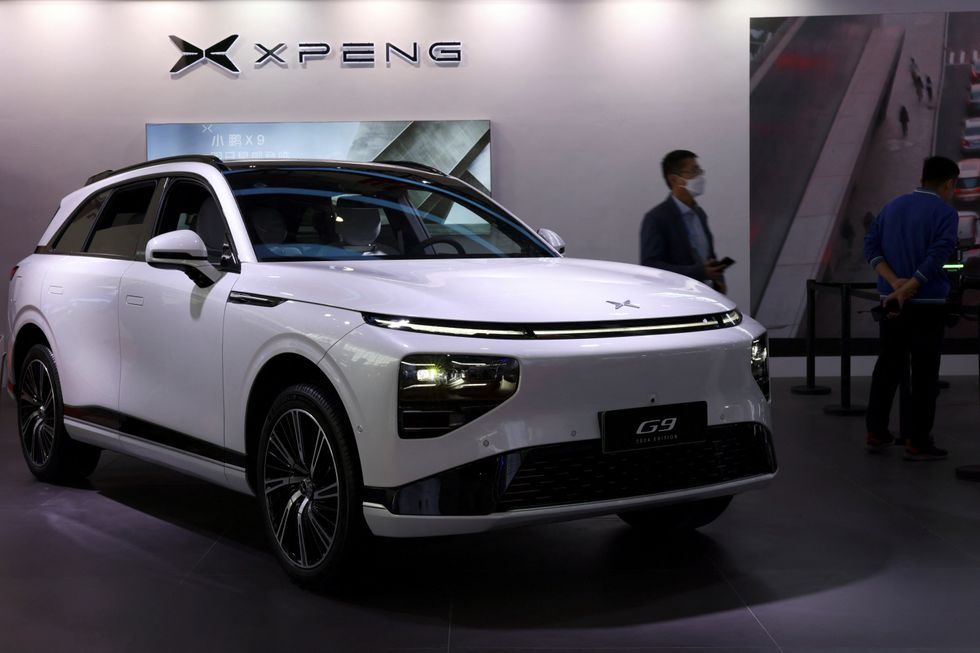Some manufacturers are remaining cautious around electric cars
GETTY
Only 16 per cent of drivers intend to buy a electric car in the next 12 months
Don't Miss
Most Read
Trending on GB News
Demand for new electric vehicles could stagnate in the coming year, according to new research, with drivers remaining hesitant to switch to EVs.
Some of the most popular car manufacturers around the world have started pulling back on their battery electric vehicle ambitions.
The research, from Bloomberg Intelligence’s new car buyers’ poll, found that high upfront prices, range anxiety and a lack of charging points are holding people back.
BI expects manufacturers across the European Union to remain cautious with a growing number of discounts, competition from China and economic uncertainty.
WATCH NOW: Danny Kelly reacts to electric car sales falling by 15 per cent
A number of vehicle manufacturers reacted to the news with concerns that it would hamper the uptake of electric cars and potentially even damage the UK’s ability to attract EV investment.
There are further fears from the industry that other nations would do the same, having a dramatic impact on the future of electric vehicles and net zero pledges.
Mike Dean, senior industry analyst at Bloomberg Intelligence, said: “EU automakers scaling back BEV ambitions amid waning consumer enthusiasm may boost 2024 margins.
“Still, this is unlikely to fully mitigate consensus downgrades on rising discounts in Europe and fierce price competition in China amid low sector multiples.”
He said there were expectations that brands like Ferrari and Porsche would push ahead with good sales thanks to a backlog of orders.
These brands are set to be directly challenged by Chinese brands like BYD and Nio for producing luxury electric car SUVs.
Electric vehicles are an average of 30 per cent more expensive than comparable petrol and diesel cars, and with smaller margins, BI has questioned whether car makers may pull back on ambitions.
Mike Dean commented on people’s buying habits, saying: “Their main issue is a lack of charging infrastructure followed by range anxiety – issues which are unlikely to be addressed in the medium term, and may see more policymakers delay the phasing out of ICE.
“Charging infrastructure is the biggest challenge, for which there is no quick fix to service a growing BEV fleet.
“Only 16 per cent of respondents intend to buy a BEV in the next 12 months, which matches the current market share in Europe.”
Some major brands have already seen issues with their electric vehicle plans, with Honda and General Motors ditching plans to build cheap EVs, while Tesla’s annual 50 per cent growth target was described as being “in tatters”.
Volkswagen is also more reluctant to compete in such an environment where China’s market share is growing until it launches its next generation of EVs in 2026.
The Bloomberg Intelligence report also acknowledged how Tesla’s shares remain volatile, falling 25 per cent since its peak in July.
LATEST DEVELOPMENTS:

Chinese electric vehicles are growing in popularity
REUTERS
It warns that the Elon Musk-led brand faces intense competition in 2024, most notably from China, with most EV brands underperforming, with the exception of BYD.








